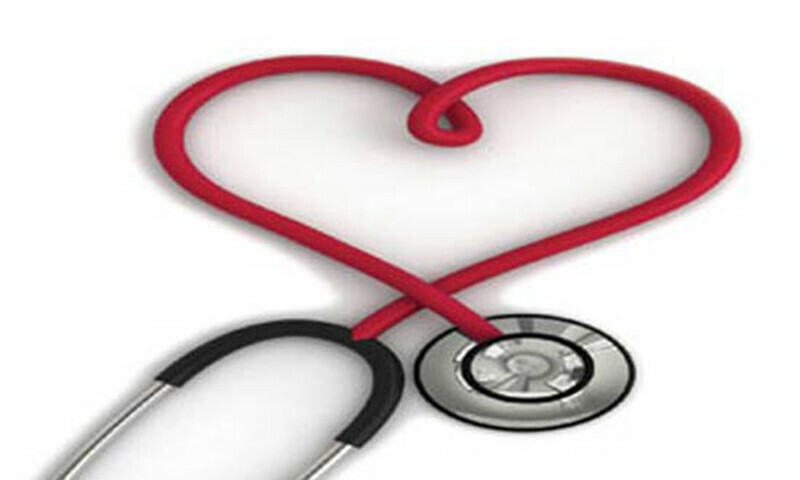• Experts reveal heart attack patients often report no chest pain
• If you feel heaviness while walking or climbing stairs, get an ECG done immediately, cardiologists advise
KARACHI: Senior cardiologists on Saturday shared the shocking findings of a study according to which nearly 50 per cent of heart attack patients in the country are younger than 49 years, and 12 to 15pc of them are under 40 years of age.
The health experts representing the National Institute of Cardiovascular Diseases (NICVD) were speaking at a symposium held at a local hotel here.
The experts warned that this trend — fueled by diabetes, hypertension, obesity, smoking, and unhealthy lifestyles — is making Pakistan one of the world’s worst-hit countries for early-age heart attacks.
The trial was designed and conducted independently by NICVD’s cardiology team and ran from June 7, 2021, to December 31, 2023. It enrolled 261 post-heart attack patients for testing effects of two anticoagulants for treating a blood clot that can form in the heart after an attack and cause stroke or other complications.
The findings have been published in the Journal of the American College of Cardiology: Advances.
According to principal investigator Dr Jehangir Ali Shah, the new drug achieved faster clot resolution in the early phase — 20 per cent at four weeks versus 8.3 per cent (with the old medicine), while both drugs had similar high success rates at 12 weeks.
“This is the largest randomised trial to date in acute left ventricular thrombus, and the results show that the new drug is safe and effective alternative,” he said, adding that 15 per cent of participants were under 40 years.
NICVD Director of Cath Lab Dr Abdul Hakeem called for public health urgency. “Pakistan has the highest rate of young heart attack patients globally. Every third adult has diabetes, 40 per cent have high blood pressure, obesity is common, and smoking rates remain high. Many patients don’t know they’re at risk. After the age of 30, everyone should get a cardiac check-up,” he said.
He added that common misconceptions — such as assuming a heart attack always causes severe chest pain — can delay treatment.
“Nine out of 10 patients have no pain, only heaviness in the chest or acidity-like discomfort. If you feel chest heaviness while walking or climbing stairs, get an ECG done immediately,” he advised.
Dr Hakeem warned that the most dangerous anterior heart attack can damage up to 60 per cent of the heart muscle and often causes a clot that appears four to eight weeks later, increasing stroke risk.
NICVD Executive Director Dr Tahir Saghir said the institute was now moving into further advanced research, including trials on drug-coated balloons that do not require stents — a development that could reduce future artery blockages. “We already have international funding for this work, and the direct beneficiaries will be our patients,” he said.
Senior cardiologist Dr Nadeem Rizvi emphasised the importance of locally conducted clinical research, saying that results based on Pakistan’s environment and healthcare system were more practical and applicable.
Dow Institute of Cardiology Director Dr Tariq Farman said genetic, socioeconomic, and physical differences between Pakistani and western populations required tailored treatment guidelines.
“We need our own data. Sometimes the recommended high doses aren’t suitable for our patients,” he said, adding that early diagnosis and treatment could prevent thousands of strokes in Pakistan’s heart patients every year.
Published in Dawn, August 10th, 2025
